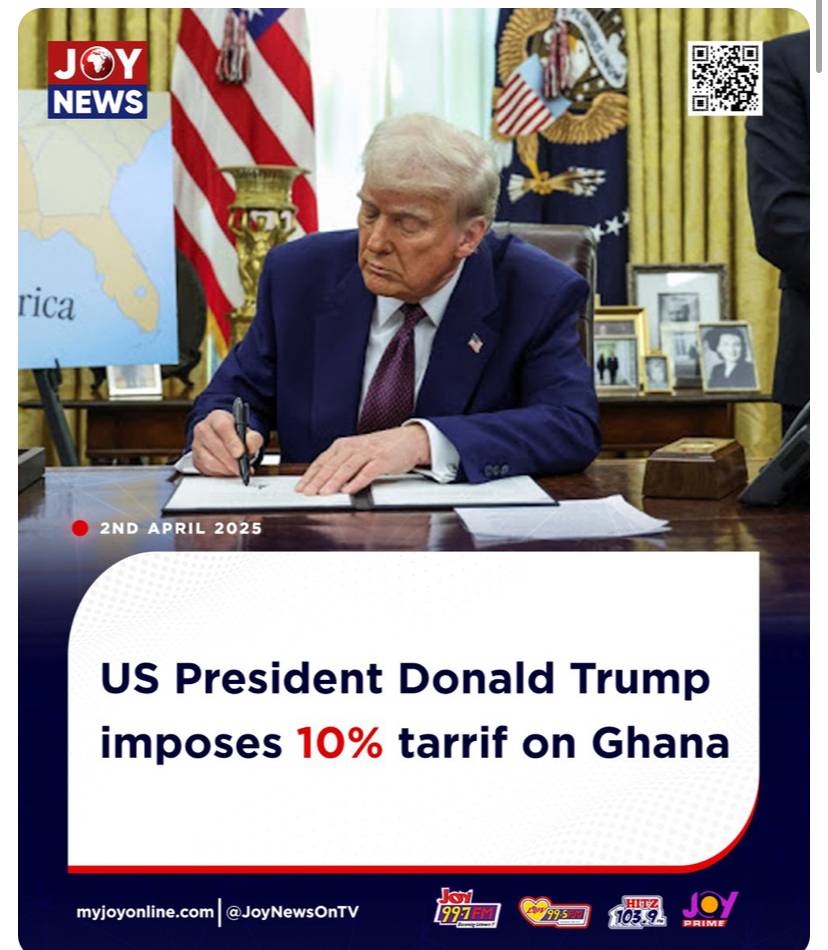US President Donald Trump Imposes 10% Tariff on Ghana
President Donald Trump has announced a new 10% tariff on goods imported from Ghana, a move that could significantly impact trade relations between the two nations. The decision, which forms part of his administration’s broader trade policies, is expected to affect key Ghanaian exports to the United States.
The new tariff will likely place financial pressure on Ghanaian businesses that rely on exports to the US, particularly in sectors such as agriculture, textiles, and raw materials. Ghana, known for exporting cocoa, gold, and other commodities, could face economic challenges as the additional costs may make its products less competitive in the American market.
This decision aligns with Trump’s protectionist approach to trade, which aims to encourage domestic production while reducing the US trade deficit. However, Ghanaian officials and business leaders have expressed concerns over the potential negative impact on their economy. Increased tariffs could reduce demand for Ghanaian goods, leading to lower revenues for exporters and possible job losses within affected industries.
The Ghanaian government is expected to engage in diplomatic discussions with the US to address the situation. Trade experts suggest that Ghana may seek exemptions or negotiate better terms to minimize the impact of the tariff. Some analysts also believe that Ghana could explore alternative markets in Europe, Asia, or within Africa to reduce reliance on US trade.
Additionally, the tariff could influence Ghana’s future trade policies and agreements. The country has been actively working on strengthening its participation in the African Continental Free Trade Area (AfCFTA), which aims to promote intra-African trade. The new US tariff may push Ghana to accelerate its economic diversification efforts and reduce dependence on exports to Western markets.
The reaction from Ghanaian businesses has been mixed. Some fear that the tariff will hurt their profitability, while others see it as an opportunity to enhance local production and seek new trading partners. Meanwhile, US companies that rely on Ghanaian imports may also be affected, as higher costs could lead to increased prices for consumers.
As the situation unfolds, both governments will likely monitor the economic effects of the tariff closely. Whether this move leads to trade negotiations, retaliatory measures, or a shift in Ghana’s economic strategy remains to be seen. For now, the 10% tariff marks a new challenge in US-Ghana trade relations, with potential consequences for both nations.




No comments yet
Be the first to share your thoughts!